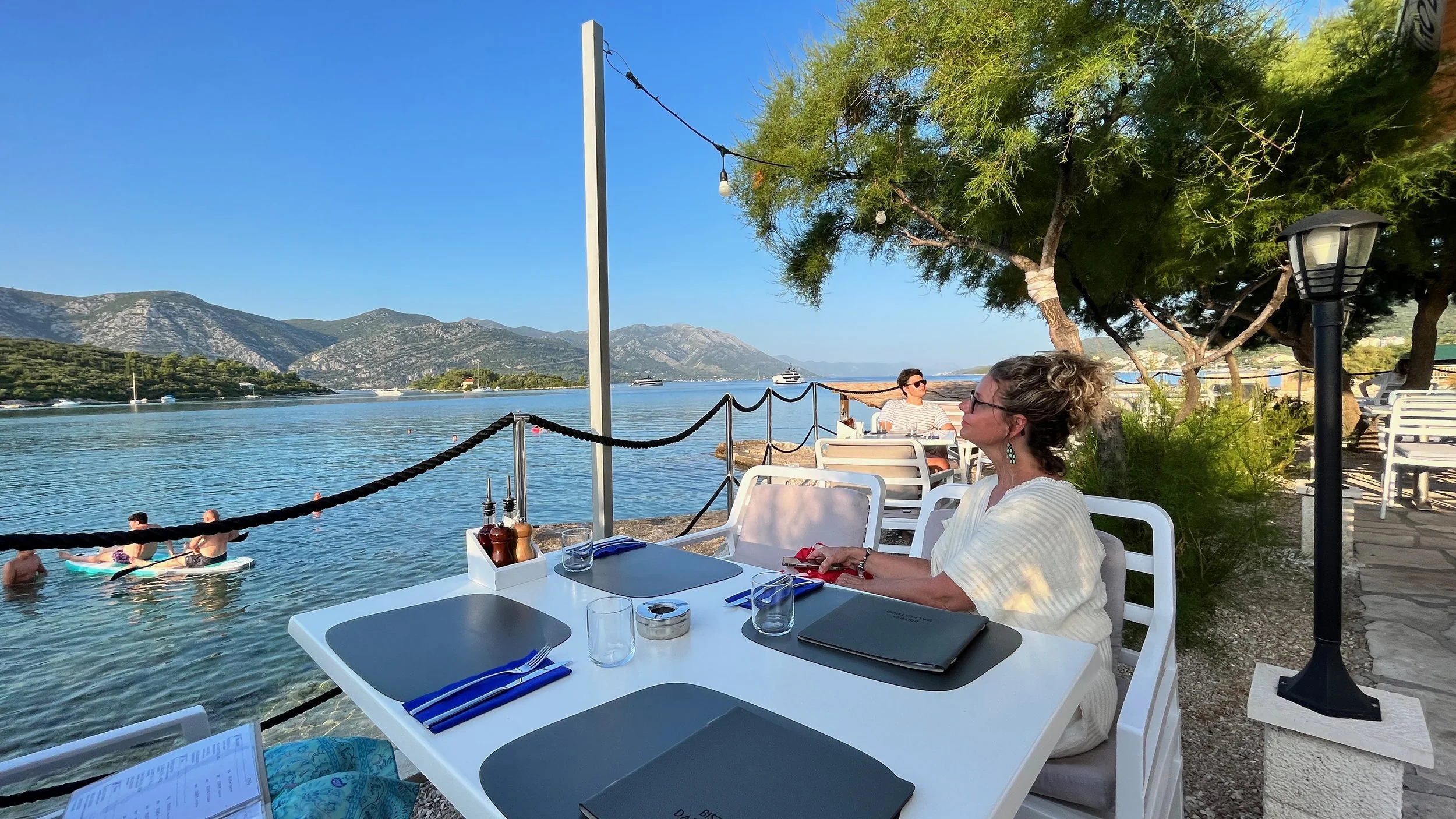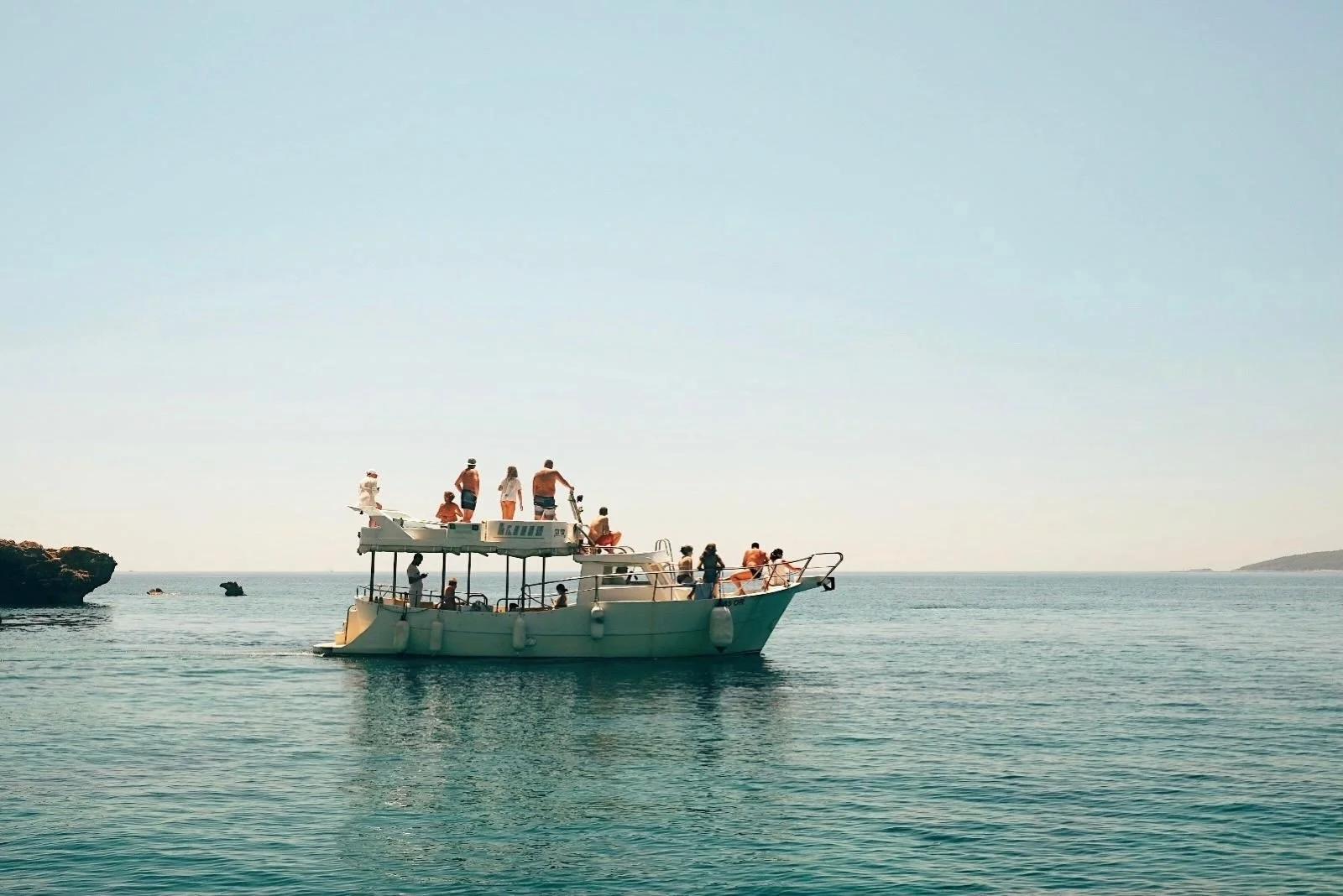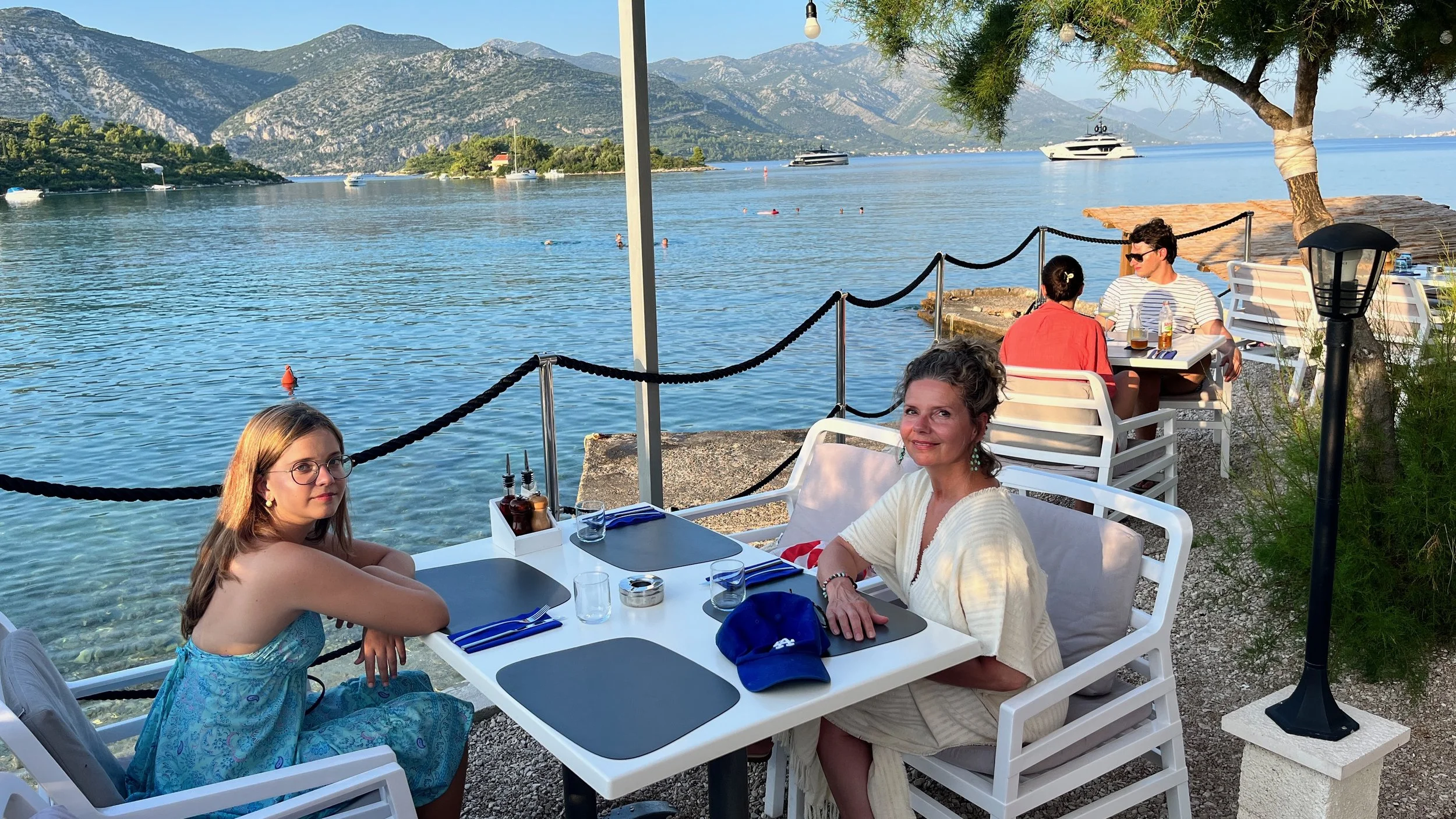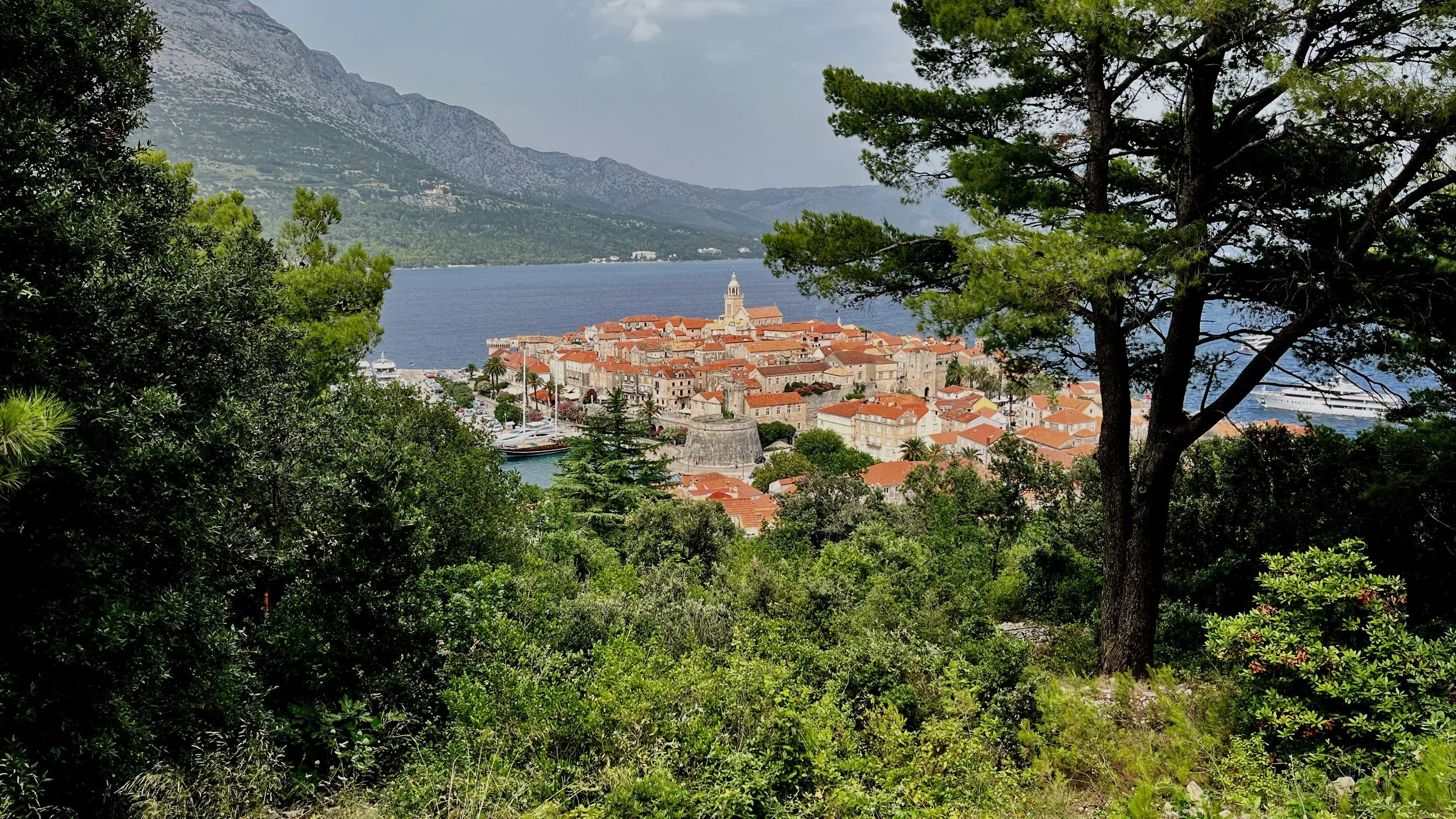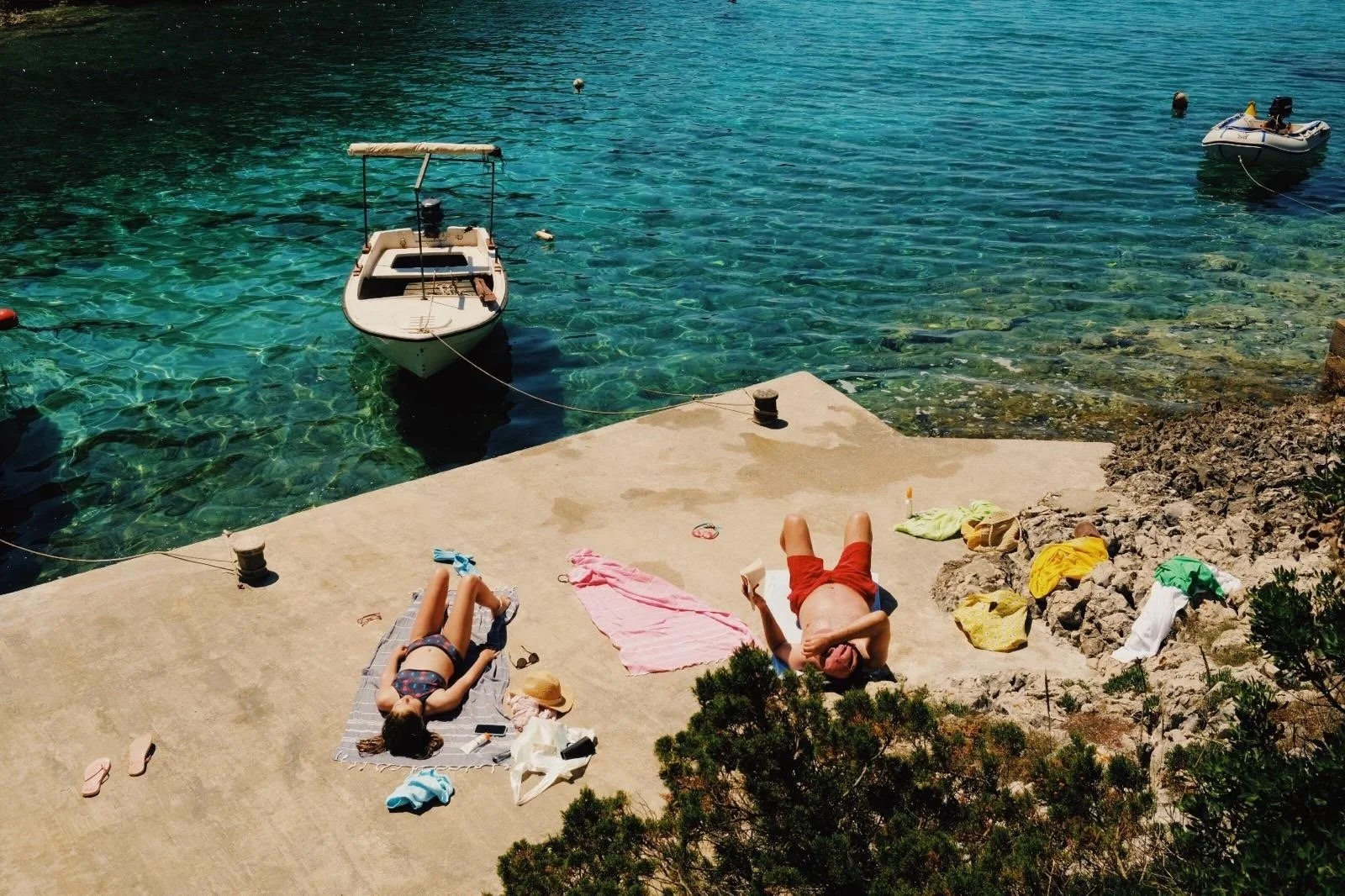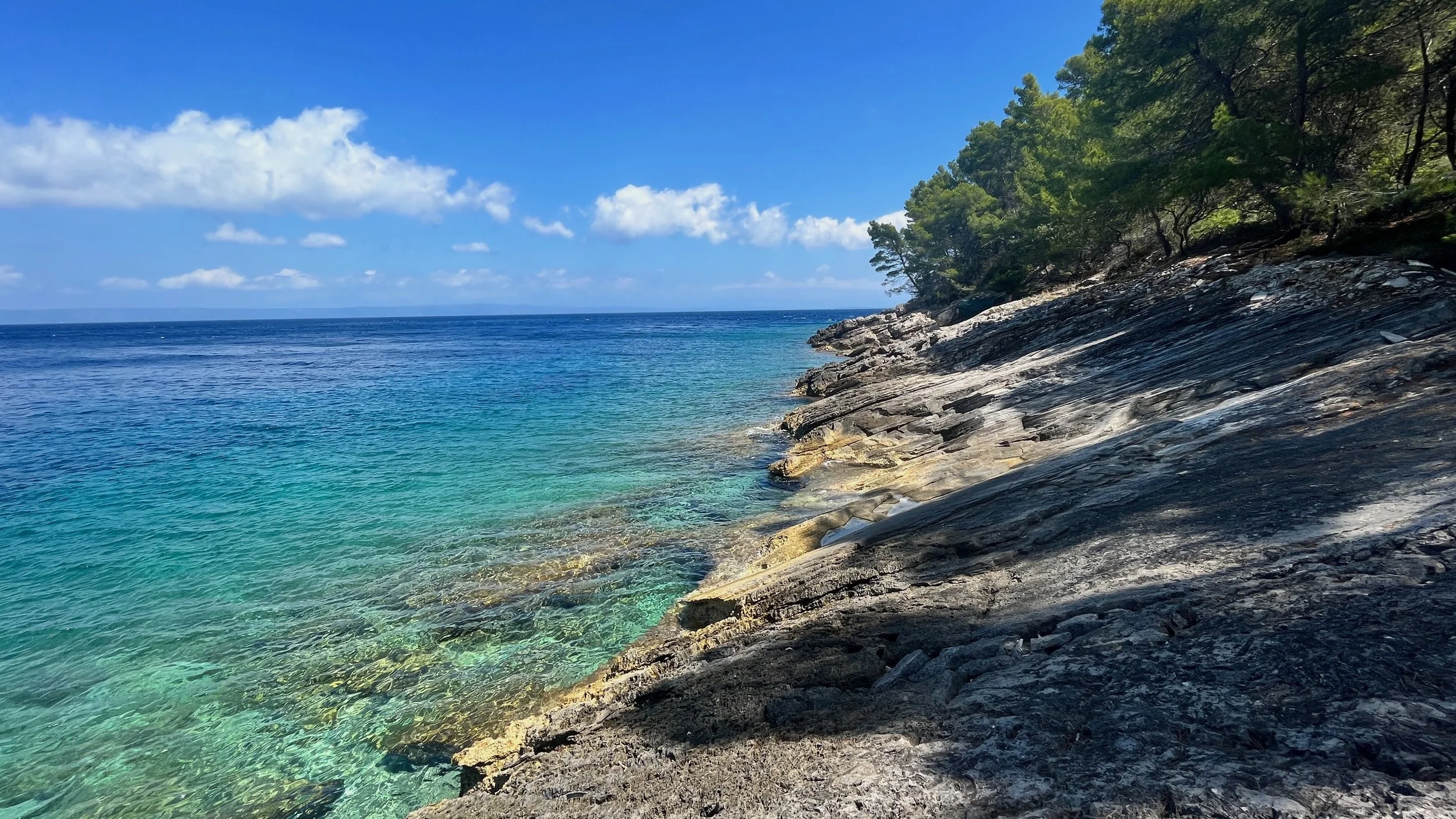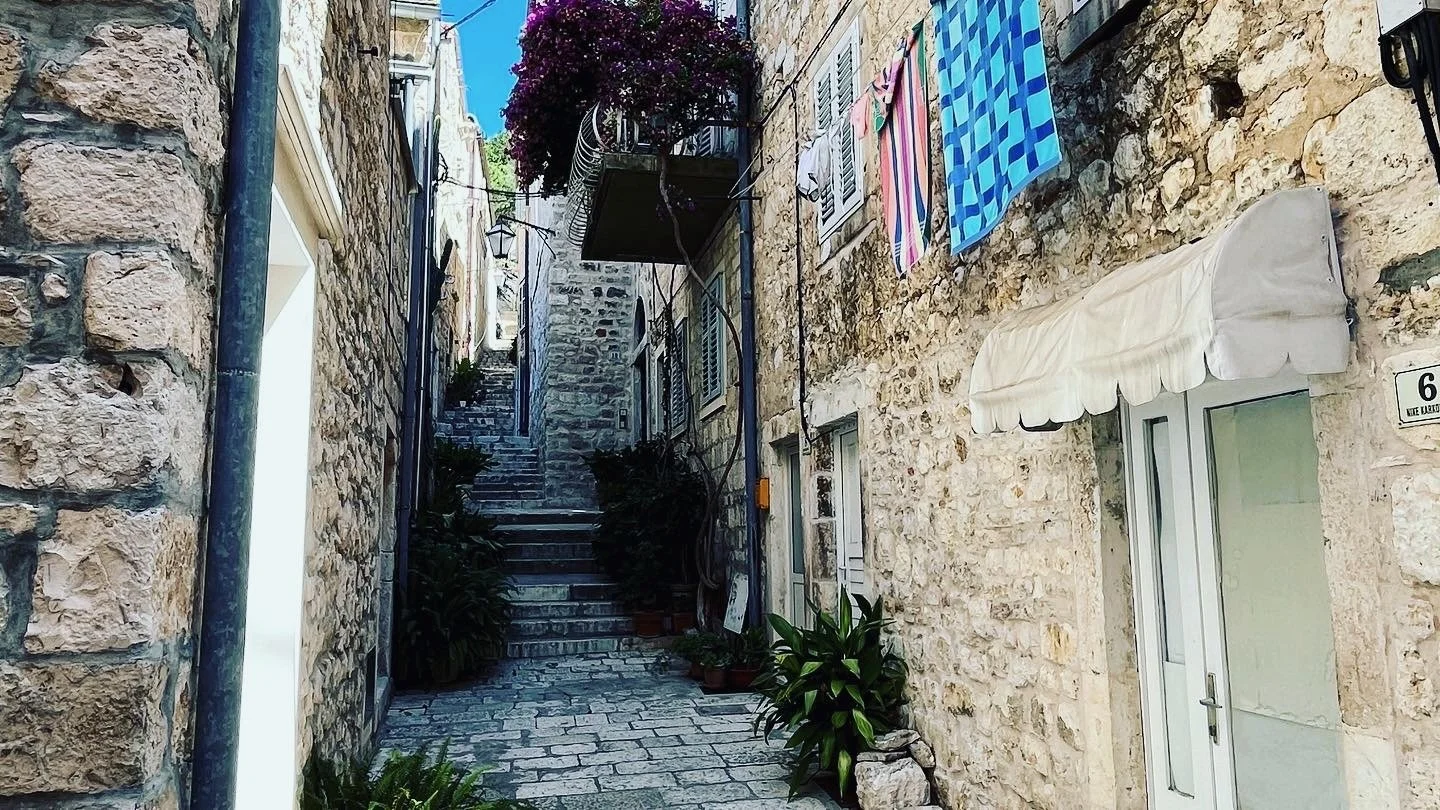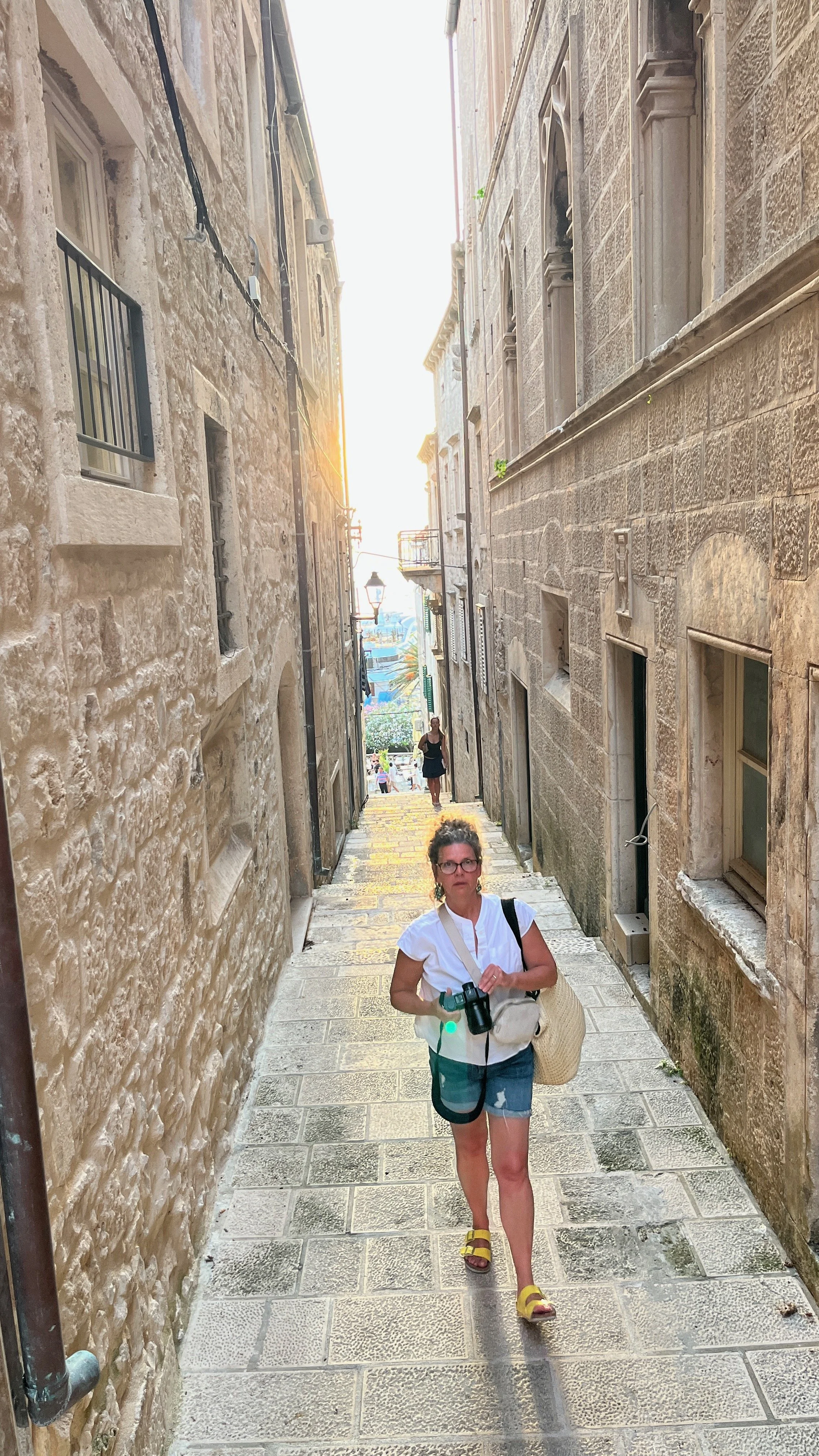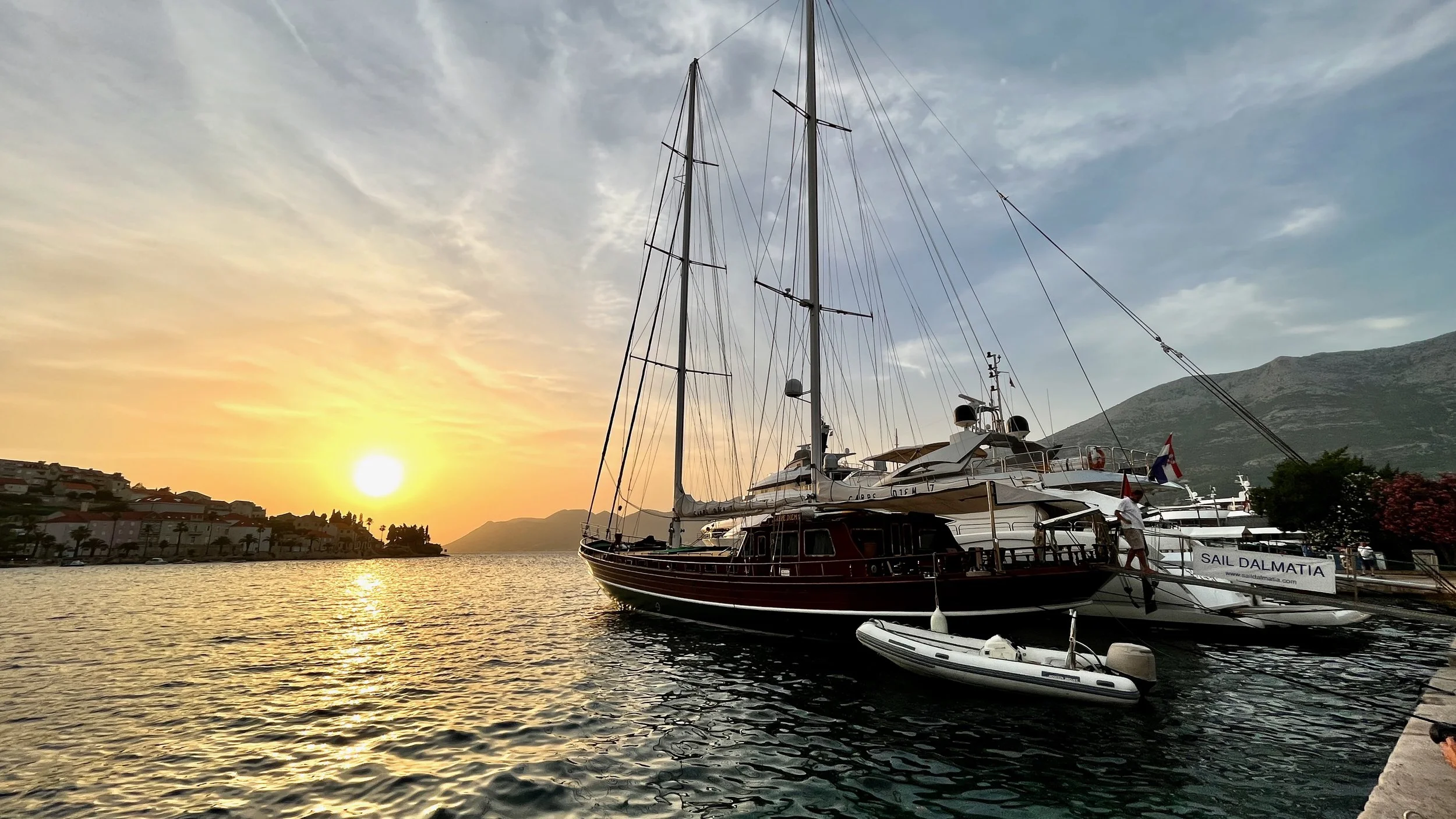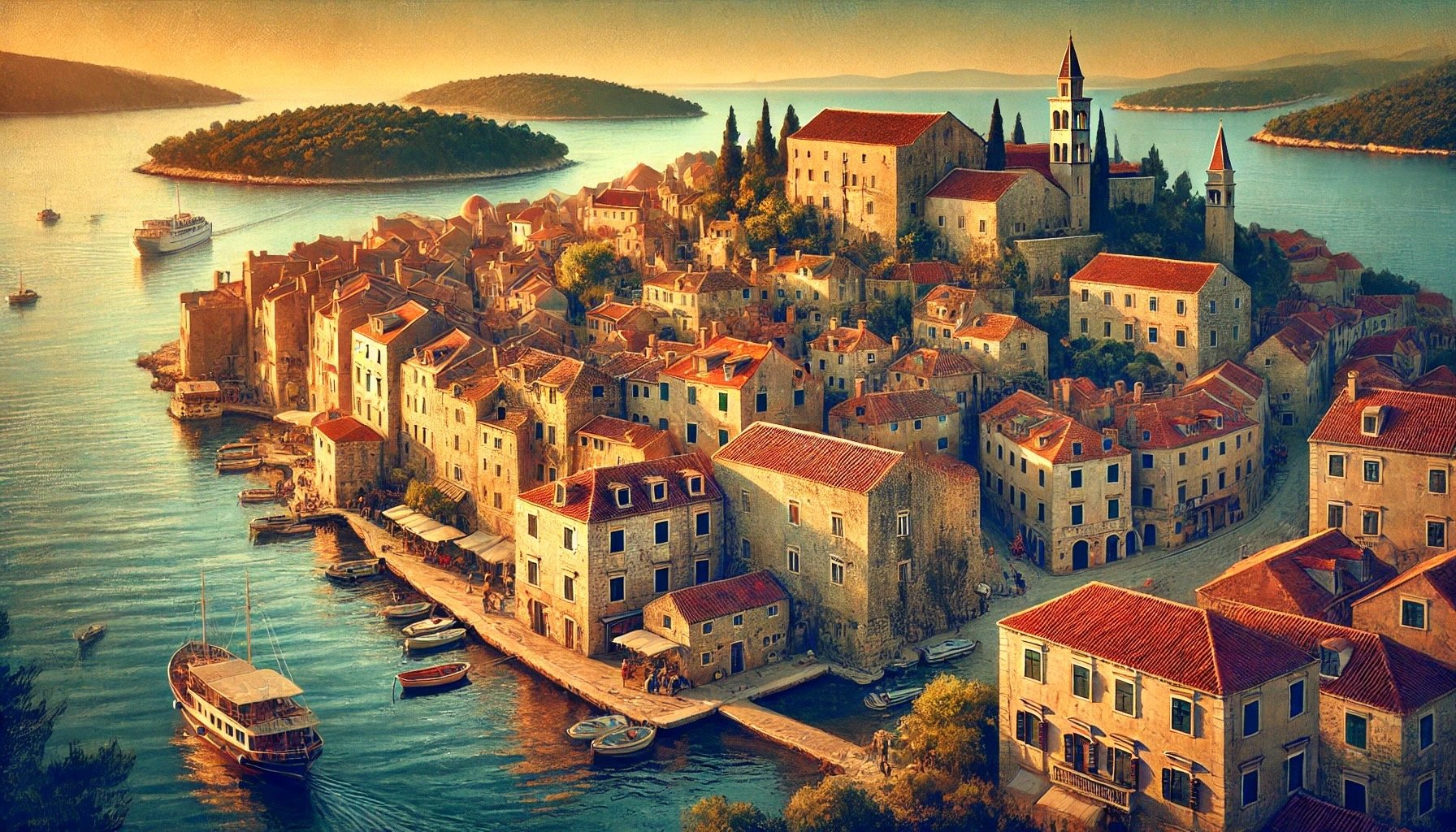
Bistro Dalmatino
The sun had just begun its slow descent behind the mainland, casting a golden glow across the bay. The fading light bathed Cindy’s face in a soft radiance as she gazed across the water, lost in thought. Judd stole a glance—as beautiful as ever, he mused, and even more so when framed by the rugged coastline that stretched around them. This was the northern shore of Korčula, a Croatian island of quiet charm and Venetian history. Home to some 2,000 residents—or, if Judd had his way, soon to be 2,002.
The view stretched across the Adriatic, toward the island of Hvar, where the wealthy and restless spent their days dozing in sun-drenched villas and their nights lost in the pulse of the clubs. Some called it the new Ibiza, a haven for those who craved indulgence. But Korčula was different—a retreat for those who preferred history over hedonism, its streets a mosaic of Gothic, Baroque, and Renaissance architecture, all wrapped in Venetian splendor. The old town, enclosed within its medieval walls, was a labyrinth of narrow alleys, its herringbone street pattern designed to shield against the fierce summer winds. It was a photographer’s dream, a treasure trove of stories etched into centuries-old stone.
Tonight, however, Judd, Cindy, and Ava had left the medieval charm behind, driving ten kilometers west in their rented VW Up—a car so small it practically laughed at the idea of high-speed chases—to the quiet seaside village of Kneže. Most tourists sped past the sleepy settlement, bound for the more polished harbor town of Račišće, with its picturesque waterfront and postcard-perfect apartments. But they were missing out.
Bistro Dalmatino—an unassuming beachfront eatery, long since discovered and claimed by Judd on an earlier visit—was the real prize. A handful of wooden tables were scattered just steps from the water’s edge, the scent of grilled seafood and olive oil thick in the air. The kitchen, impossibly small for the magic it produced, turned out some of the finest Dalmatian cuisine one could find. They secured their usual spot beneath a gnarled olive tree, the sea lapping at the stone wall just meters away.
Judd had been dreaming about this meal all afternoon, lounging on Pupnatska Luka, one of Korčula’s most breathtaking pebble beaches, where the water shimmered in impossible shades of turquoise. He wasted no time ordering:
Dagnje na buzaru—mussels, lightly steamed until they surrendered, bathed in garlic, olive oil, and fresh parsley.
Srdele na žaru—grilled sardines, charred to perfection, served with warm bread.
And the main event—a whole carp, slow-cooked over an open flame, its golden skin crisp, its flesh tender and smoky.
Cindy and Ava, sticking to land-based indulgence, both opted for succulent steaks, accompanied by a plate of Jadranske lignje na padelu—squid sautéed in white wine and olive oil, its briny sweetness offset by the charred edges from the pan.
The sun melted into the horizon, painting the sky in hues of amber and violet, the perfect lighting for Cindy’s wild brown curls, now haloed in gold. Judd took a mental picture. How lucky he was.
Dinner ended with the three of them strolling along the shoreline, the village quieting as night deepened. But Cindy’s gaze caught something in the distance, and the warmth of the evening air suddenly felt thick with tension. Their mark had arrived. And the mission was at hand.
There, floating like a monolith of excess and secrecy, was Nocturne—Sebastian Wolf’s sleek, obsidian-hulled superyacht, a 120-meter specter on the Adriatic. It barely seemed to move, a leviathan lurking just beyond the reach of the shore, its presence impossible to ignore.
To the world’s elite, Nocturne was a billionaire’s playground. To those who knew better, it was a war machine wrapped in luxury—a floating command center, built for secrecy, surveillance, and power.
Its dark glass and polished titanium devoured the moonlight, a study in modern minimalism that concealed its true purpose. At the stern, a helipad waited, ready for Wolf’s personal fleet. Below deck, a submersible launch bay hinted at even darker intentions.
Inside, black marble and carbon fiber set the tone. Custom-made furniture, the work of elite designers, reflected the owner’s precision. A vault, disguised within Wolf’s private quarters, housed classified data, stolen artifacts, and secrets that could reshape global power structures.
And below all that—a hidden server farm, its processors pulsing with encrypted communications, research, and whatever Wolf was planning next.
Nocturne never stayed in one place for long. It ghosted from Monte Carlo to the South China Sea, from Dubai to the Antarctic ice shelves. Always just out of reach.
Tonight, it sat ominously still in the dark waters beyond Kneže.
Cindy folded her arms, staring at it.
“We’re going to have to go in, aren’t we?”
Judd exhaled, staring at the ghost ship on the horizon.
“No way around it.”
Ava tossed a rock into the surf, watching the ripples expand toward the yacht.
“Well,” she said dryly, “at least the food’s good here.”
Judd smirked, but his gaze didn’t leave the water.
For all the quiet beauty of Korčula, he knew what was coming.
